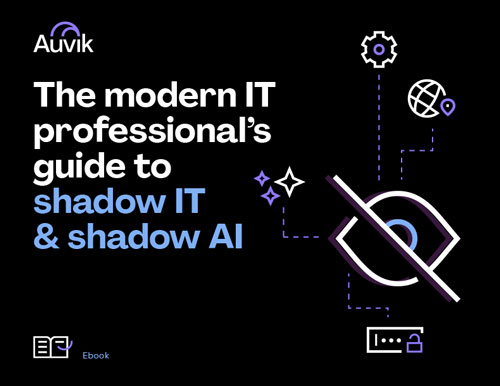One of the biggest challenges for any fast growning network or IT solution provider or MSP is dealing with the constant phone interruptions.
- When you’re on a client site, your cellphone is ringing.
- When you’re at your desk reading email, your landline is ringing.
- Even when you’re on the phone helping a client, another client is calling you.
The trouble with the phone is that there’s no sense of priority. We’ve been conditioned to believe that a ringing phone must be answered, even if it means stopping what we’re doing right now. The call may not be urgent, or even important, but the ring-ring means it takes priority over whatever we’re currently doing.
The result? At best, an interrupted workflow. At worst, you get nothing done at all because you’re constantly being interrupted. So, how do you deal with those phone interruptions?
Dealing with phone interruptions in the office
To deal with phone calls in the office requires you to take a clear view of how you deal with phone calls overall.
Right now, it may be that if a phone rings, the responsibility for answering falls to anyone in the office. Rather than one staff member being interrupted, two, three or more employees look up and try to answer the phone at the same time. Worse, everybody expects everyone else to answer and in reality, nobody does.
Instead, pick someone to be the designated call handler. In my own MSP business, it was the office manager who typically took on this role. Or, if you prefer, create a rotation schedule where one person serves as the designated “receptionist” for the week, before handing over the role the following week.
This method can work for your helpdesk too. Rather than all your technicians dealing with phone interruptions, assign one technician to be the designated call handler. That person isn’t there to fix issues. They’re there to take details, log tickets, and set client expectations for a response.
Some MSPs grow to the stage where they have a dedicated staff member to take on the role of answering client calls. This dispatcher is often not a technical person at all, but somebody who logs support requests on behalf of clients and allocates tickets to technicians.
The benefit to having a dispatcher is that technicians no longer get to cherry pick jobs and ignore the difficult or boring ones. Instead, they’re given tickets to work on by the dispatcher.
Whether you’re using a dispatcher, receptionist or a rotation schedule, the goal is clear. The interruption of phone calls can’t be avoided in an MSP, but you can minimize the impact and allow the majority of your team to get on with their work.
Using a call handling service
Another option, especially for micro MSPs, is to use a call handling service. Using such a service, you can take two approaches:
- Redirect all calls to the service, leaving them to filter out calls or take messages for you.
- Redirect calls to the service when you’re busy or away, leaving them to take a message for you.
Most call handling services assign you a small pool of named individuals who answer your calls as your business. They’ll either put calls through to you (if they’re urgent or from specific clients) or take a message that’s then emailed or texted to you.
If you’re worried your clients won’t appreciate being answered by a “stranger,” don’t be. My experience is that your clients will assume the person answering is a part of your team and treat them as such.
Even for MSPs with a delegated dispatcher, receptionist, or office manager, I’d recommend a call handling service. It allows you to deal with especially busy periods, team meetings, and all sorts of occasions when the phone is in danger of becoming an interruption again.
Dealing with cellphone calls
Create a policy for dealing with cellphone calls. I suggest your policy be that employees should answer internal calls from colleagues. But any calls from clients, suppliers, or anyone else external should be redirected to the office or your call handling service.
If you answer client calls on your cellphone, you’re educating them to avoid the systems you’ve put in place for logging support calls and handling queries. Those one-offs where they tell you “it’s just a quick call” will soon become the standard.
You’re also subtly giving them permission to call you out-of-hours, on a weekend, and all times in between. Don’t do it.
I’m also an advocate of turning off voicemail. If you leave your cellphone voicemail switched on, wait for the first time a client leaves you a voicemail when you’re on holiday—then gets angry when you haven’t returned her call. Again, redirect any client calls that reach your cellphone to the office. Educate your clients that your cellphone isn’t a shortcut to contacting you.
Taking control of phone interruptions
You need to make an important decision about how you handle phone interruptions calls within your MSP business. Are you going to set client expectations that phoning you means they get an instant response, even when that response isn’t always warranted? Or are you going to set the expectation that you’ll acknowledge and deal with their issues in a timely fashion, even if that means you don’t personally take their phone calls?
Sadly, most MSPs live with the fear that if they don’t answer client calls personally and instantly, clients will become frustrated and upset. My experience is that clients are busy people, just like you and me. Provided you deliver the levels of service they expect, they won’t care whether they’re talking to you, your call handling service, or your receptionist.
Take control of the phone. Don’t let it control you.


